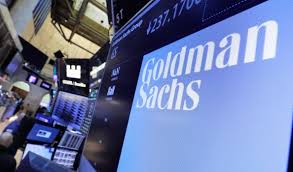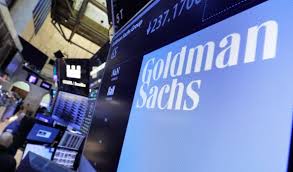
Partly because it would mean dealing directly with a Venezuelan state bank, Goldman Sachs turned down a request from Caracas to convert $5 billion in sovereign bonds into marketable securities in early May, reported the media.
After opposition politicians called it to warn about the potential damage of being seen as aiding President Nicolas Maduro's administration, the Wall Street bank also weighed reputational risks apart from the complexity of the operation which was the primary concern for Goldman, eh media said quoting sources.
There has been a campaign to cut off Wall Street financing for Maduro by opposition lawmakers, economists and lawyers and the warnings were part of that campaign. Flagging the risks of financing a government which has been criticized internationally for human rights abuses and economic mismanagement, they dispatched letters in recent months to the heads of 13 major banks, including Goldman Sachs boss Lloyd Blankfein as they are well aware that his cash-strapped administration was seeking funds.
Its asset management arm had bought $2.8 billion of another bond issued by Venezuela's state oil company PDVSA at a steep discount, Goldman Sachs confirmed last week. $100 million worth, also at a cut rate was bought by Japanese investment bank Nomura.
While some U.S. lawmakers and raised concerns within the U.S. administration, the deals drew condemnation from Julio Borges, the head of Venezuela's opposition-run Congress.
Goldman said in its defense that it did not interact with the Venezuelan government" and its asset-management arm acquired the bonds "on the secondary market from a broker, the bank said in a statement.
The bond purchase did not receive top-level scrutiny because of that. Sources said that the deal was not looked into by the bank's group-wide standards committee, which usually reviews controversial transactions.
Despite overhauling its governance structure in the wake of the financial crisis, the omission highlights the challenge Goldman still faces in managing controversial deals.
Sources also said that the backlash had taken aback the executives at Goldman’s headquarters in New York. How it handles trades that involve high risk jurisdictions, would be reviewed by the asset management division.
Caracas had earlier also approached Nomura, like Goldman.
In return for a $1 billion cash infusion for Venezuela's central bank, which held the bonds, the Japanese investment bank ended discussions about a repurchase deal where it would take up $3 billion in the PDVSA bonds in April.
Nomura's trading division paid about a third of the face value of its slice, when the PDVSA bond came up for sale again, this time via intermediaries, according to sources. An estimated 31 cents on the dollar for its batch was paid by Goldman’s asset management arm.
The division has not experienced the same sort of public censure as the bank's trading and banking divisions, where risk managers scrutinize transactions for reputational impact even though it manages $1.37 trillion on behalf of pension funds, mutual funds and other big investors.
The buyers were not dealing directly with the Venezuelan government because of the use of intermediaries and the deal for the PDVSA bond had obvious financial appeal.
(Source:www.reuters.com)
After opposition politicians called it to warn about the potential damage of being seen as aiding President Nicolas Maduro's administration, the Wall Street bank also weighed reputational risks apart from the complexity of the operation which was the primary concern for Goldman, eh media said quoting sources.
There has been a campaign to cut off Wall Street financing for Maduro by opposition lawmakers, economists and lawyers and the warnings were part of that campaign. Flagging the risks of financing a government which has been criticized internationally for human rights abuses and economic mismanagement, they dispatched letters in recent months to the heads of 13 major banks, including Goldman Sachs boss Lloyd Blankfein as they are well aware that his cash-strapped administration was seeking funds.
Its asset management arm had bought $2.8 billion of another bond issued by Venezuela's state oil company PDVSA at a steep discount, Goldman Sachs confirmed last week. $100 million worth, also at a cut rate was bought by Japanese investment bank Nomura.
While some U.S. lawmakers and raised concerns within the U.S. administration, the deals drew condemnation from Julio Borges, the head of Venezuela's opposition-run Congress.
Goldman said in its defense that it did not interact with the Venezuelan government" and its asset-management arm acquired the bonds "on the secondary market from a broker, the bank said in a statement.
The bond purchase did not receive top-level scrutiny because of that. Sources said that the deal was not looked into by the bank's group-wide standards committee, which usually reviews controversial transactions.
Despite overhauling its governance structure in the wake of the financial crisis, the omission highlights the challenge Goldman still faces in managing controversial deals.
Sources also said that the backlash had taken aback the executives at Goldman’s headquarters in New York. How it handles trades that involve high risk jurisdictions, would be reviewed by the asset management division.
Caracas had earlier also approached Nomura, like Goldman.
In return for a $1 billion cash infusion for Venezuela's central bank, which held the bonds, the Japanese investment bank ended discussions about a repurchase deal where it would take up $3 billion in the PDVSA bonds in April.
Nomura's trading division paid about a third of the face value of its slice, when the PDVSA bond came up for sale again, this time via intermediaries, according to sources. An estimated 31 cents on the dollar for its batch was paid by Goldman’s asset management arm.
The division has not experienced the same sort of public censure as the bank's trading and banking divisions, where risk managers scrutinize transactions for reputational impact even though it manages $1.37 trillion on behalf of pension funds, mutual funds and other big investors.
The buyers were not dealing directly with the Venezuelan government because of the use of intermediaries and the deal for the PDVSA bond had obvious financial appeal.
(Source:www.reuters.com)





